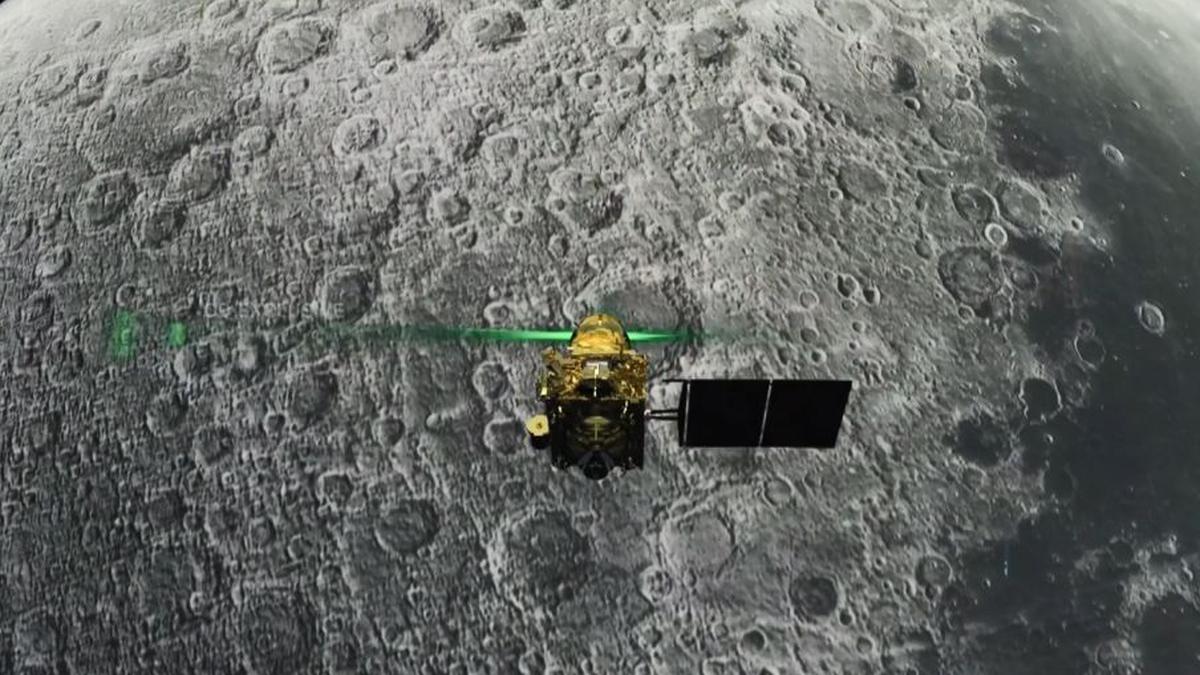Now Reading: Chandrayaan-3 and the Lunar Question
-
01
Chandrayaan-3 and the Lunar Question
Chandrayaan-3 and the Lunar Question

The question of who possesses the moon is a complex one, and India, with its recent Chandrayaan-3 mission, is uniquely positioned to offer a new perspective. While the Outer Space Treaty of 1967 declared that outer space, including celestial bodies, cannot be appropriated by any nation, the spirit of this agreement is being tested by a new era of lunar exploration.
New Delhi, August 23, 2025: In the wake of the successful lunar landing by the Chandrayaan-3, a new debate has been ignited. The mission’s achievement, which made India the fourth country to land on the moon and the first to reach the South Pole, has been celebrated globally. However, this success has also brought to the forefront a critical legal and ethical dilemma. The resources of the moon, such as lunar water ice, are believed to be essential for future missions and potential colonization. These resources are of immense value, and their ownership is not clearly defined in current international law.
The Outer Space Treaty, which was ratified by over 100 nations, was a landmark agreement in its time. It was established to ensure that space exploration would be for the benefit of all humanity. The treaty’s core principle—that no nation can claim sovereignty over the moon—is a fundamental pillar of international space law. However, this agreement was drafted during a period when lunar resource extraction was a distant prospect. Today, as technology advances, the treaty’s limitations are being exposed.
Also Read:PM Modi’s SCO Summit Visit to China: A Strategic Reset After 7 Years?
A new framework is being proposed by some nations to address the issue of resource extraction. The Artemis Accords, a US-led initiative, are an example of this. These accords, which have been signed by a growing number of countries, aim to establish a set of principles for cooperation in lunar exploration. While the accords are intended to ensure transparency and peaceful activities, they are also seen by some as a way for a few powerful nations to gain control over lunar resources.
India’s recent mission, and its established reputation for peaceful and collaborative space exploration, offers a compelling alternative. India has been a strong proponent of international cooperation in space and has consistently upheld the principles of the Outer Space Treaty. Its approach to space exploration has been characterized by its focus on scientific research and its commitment to the global community. The country’s unique position could allow it to lead a new conversation on lunar resource ownership. A global consensus could be formed under India’s leadership, one that ensures that the benefits of space exploration are shared equitably by all nations.
It is hoped that the successful lunar landing by Chandrayaan-3 will pave the way for a more inclusive and cooperative future in space. A new international agreement, one that addresses the issue of lunar resource ownership and ensures that space exploration is for the benefit of all, is needed. The world will be watching to see how this challenge is met. The moon, once a distant object of fascination, is now at the center of a new legal and ethical debate.







